WANT TO DISCOVER MORE?
SEARCH
WANT TO DISCOVER MORE?
SEARCH
he trucking industry is currently grappling with significant pressure induced by an ongoing transformation predicated on three fundamental changes to its long-standing operations.
Download the full insight now.
Steffen Stumpp
Steffen Stumpp (1970) joined the Berylls Group in October 2020 as Head of Business Unit Commercial Vehicles. At this point, he already looked back on extensive professional and leadership experience in the commercial vehicle industry. Stumpp started his career in an OEM and went through different roles in research, marketing, product planning and after-sales service. When he switched to the automotive supplier industry, he took over the responsibility for worldwide sales and marketing of a medium-sized tier 1 supplier. After another step as head of sales he decided to join Berylls, where he is now responsible for the commercial vehicle business.
Stumpp is a graduate engineer and has studied industrial engineering at the KIT in Karlsruhe and the Technical University of Berlin with focus on logistics.
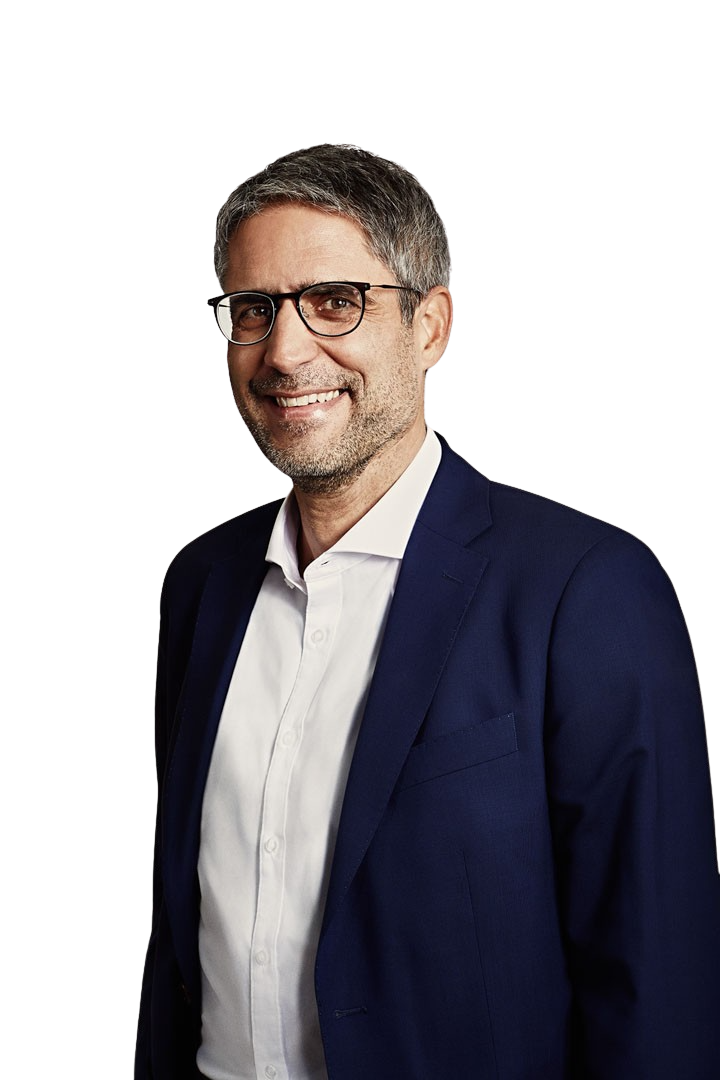
ie Zuliefererindustrie 2022 war geprägt von Sonderfaktoren wie dem Krieg in der Ukraine, steigender Inflation und weiterhin hohen Rohstoffpreisen.
Obwohl 95 der Top 100 Zulieferer im Geschäftsjahr 2022 steigende Umsätze verzeichnen, schrumpft die Profitabilität bei mehr als der Hälfe. Nach einem Gesamtumsatz von 899 Milliarden Euro in 2021 steigerten die Top 100 dieses Resultat um 18,3 Prozent auf 1.064 Milliarden Euro und durchbrechen damit erstmals die Schallmauer von einer Billion Euro Umsatz.
Der Beitrag der chinesischen Zulieferer an der internationalen Umsatzentwicklung steigt stetig. Im Jahr 2018 lag er noch bei fünf Prozent, 2022 können die Chinesen bereits einen neunprozentigen Anteil für sich verbuchen. Der Zuwachs geht zu Lasten der deutschen und japanischen Zulieferer. Deutschland war am Gesamtumsatz 2018 mit stolzen 23 Prozent beteiligt, Japan steuerte 28 Prozent bei. Beide Nationen verzeichnen seither schmerzhafte Rückgänge. Die deutschen Zulieferer tragen nur noch 21 Prozent zum globalen Gesamtumsatz der Branche bei, die Japaner 22 Prozent.
Dass 2022 ein gemischtes Jahr für die Branche war, zeigt sich auch darin, dass trotz starkem Umsatzwachstum die durchschnittliche Profitabilität von 6,3 Prozent auf 5,6 Prozent gefallen ist. Höhere Materialkosten, Unruhen in den Lieferketten und gestiegene Energiekosten werden voraussichtlich auch noch bis in das nächste Jahr reichen. Auf der anderen Seite sind Halbleiterhersteller die klaren Gewinner. Die drei profitabelsten Unternehmen sind in diesem Jahr allesamt in dieser Branche tätig. Und: Auch 2022 gab die allgegenwärtige Elektromobilität die Richtung vor.
Aber sehen Sie selbst!
Weitere Informationen zur jährlichen TOP 100-Zuliefererstudie finden Sie unter www.berylls.com/category/top-100/
Dr. Alexander Timmer
Dr. Alexander Timmer (1981) ist seit Mai 2021 als Partner bei Berylls by AlixPartners (ehemals Berylls Strategy Advisors) tätig, einer internationalen und auf die Automobilitätsindustrie spezialisierten Strategieberatung. Er ist Experte für Markteintritts- und Wachstumsstrategien, M&A und kann auf eine langjährige Erfahrung im Operations-Umfeld zurückschauen. Dr. Alexander Timmer berät seit 2012 Automobilhersteller und -zulieferer im globalen Kontext. Er verfügt über ein fundiertes Expertenwissen in den Bereichen Portfolioplanung, Entwicklung und Produktion. Zu seinen weiteren fachlichen Schwerpunkten zählen unter anderem Digitalisierung und der Themenkomplex rund um die Elektromobilität.
Vor seinem Einstieg bei Berylls Strategy Advisors war er unter anderem für Booz & Company und PwC Strategy& als Mitglied der Geschäftsführung in Nordamerika, Asien und Europa tätig.
Im Anschluss an sein Maschinenbaustudium an der RWTH Aachen und der Chalmers University in Göteborg promovierte er im Bereich der Fertigungstechnologien am Werkzeugmaschinenlabor der RWTH Aachen.
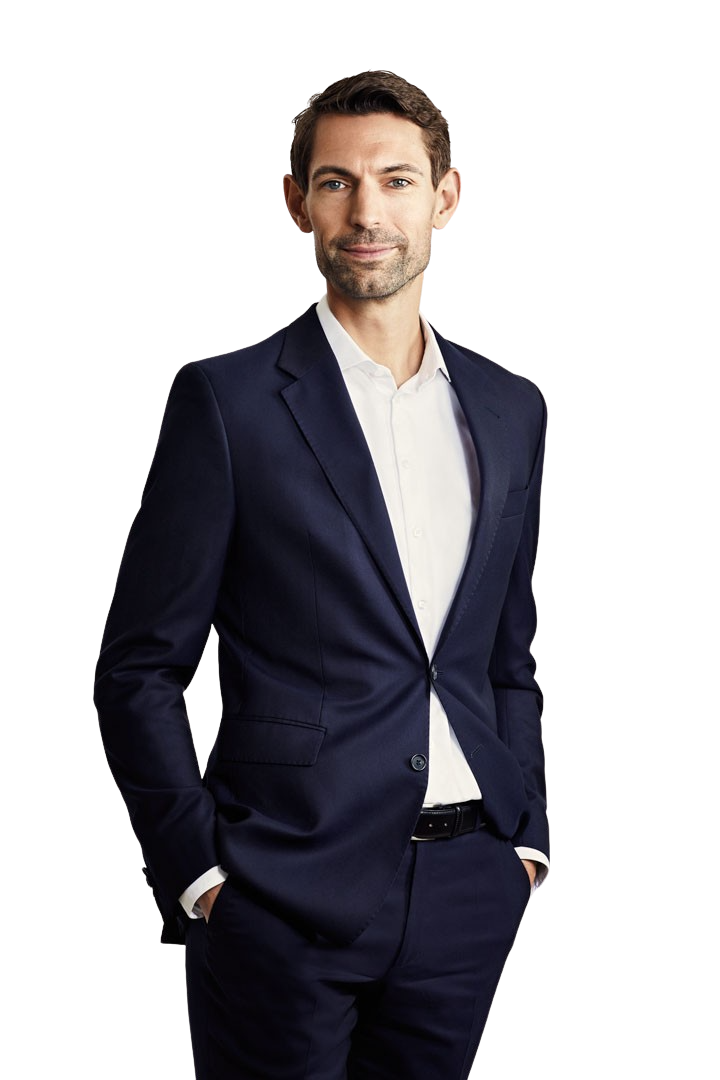
Dr. Jan Dannenberg
Dr. Jan Dannenberg (1962) ist seit 1990 Berater der Automobilindustrie und seit Mai 2011 Gründungspartner bei Berylls Strategy Advisors. Bis zum Frühjahr 2011 war er acht Jahre international als Partner – davon fünf Jahre als Associate Partner – für Mercer Management Consulting und Oliver Wyman tätig. Er ist ausgewiesener Spezialist für Innovationen und Markenmanagement in der Automobilindustrie und berät im Schwerpunkt Zulieferer und Investoren zu Strategie, Mergers & Acquisitions und Performance Improvement. Zudem ist er Geschäftsführer von Berylls Equity Partners, eine auf Mobilitätsunternehmen spezialisierte Beteiligungsgesellschaft.
Bachelor of Arts in Volkswirtschaftslehre von der Stanford University, Studium der Betriebswirtschaftslehre und Promotion an der Universität Bamberg.
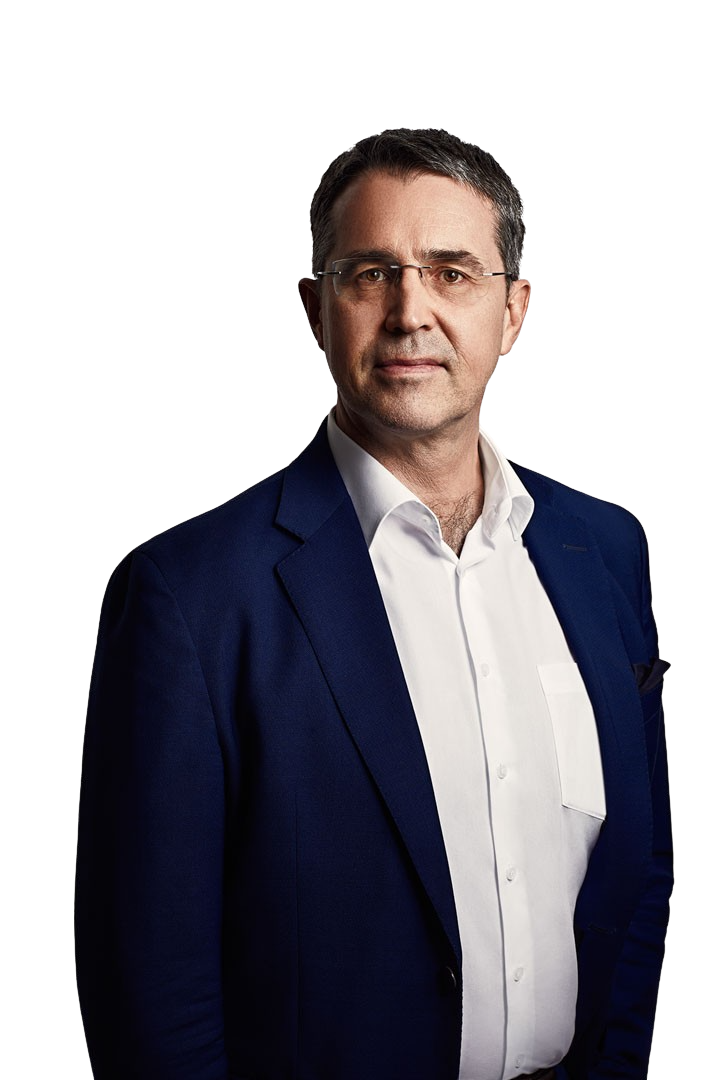
Dr. Jürgen Simon
Dr. Jürgen Simon (1986) ist als Associate Partner bei Berylls by AlixPartners (ehemals Berylls Strategy Advisors) tätig, einer internationalen und auf die Automobilitätsindustrie spezialisierten Strategieberatung. Er ist Experte für Vertriebs- und Unternehmensstrategien sowie M&A und kann auf eine langjährige Beratungserfahrung zurückschauen. Er berät seit 2011 Automobilhersteller und -zulieferer und verfügt über fundiertes Expertenwissen in den Bereichen ganzheitliche Strategieentwicklung, Geschäftsmodelle und Commercial Due Diligence. Weitere Schwerpunkte liegen in Markteintrittsstrategien sowie Themen rund um das „Software Defined Vehicle“. Als diplomierter Ökonom der Universität Hohenheim hat er vor seinem Einstieg bei Berylls am Institut für Unternehmensführung des Karlsruher Instituts für Technologie (KIT) promoviert.
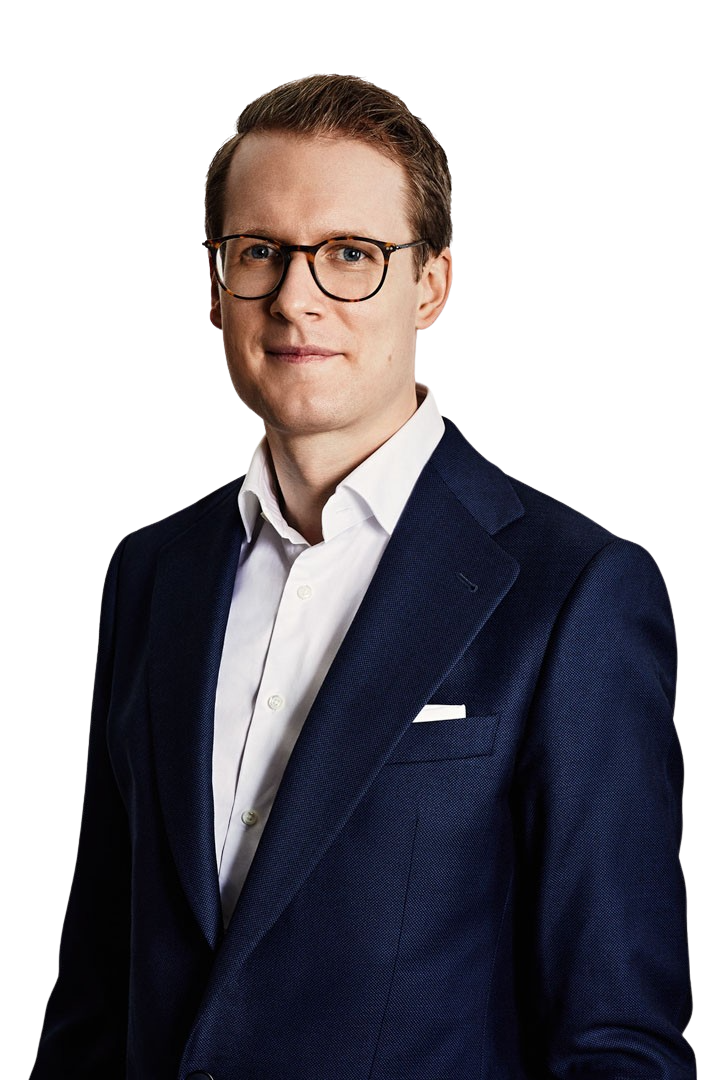
pple's newest Vision Pro is here and brings with it the promise of reinvigorated momentum in immersive Web 3.0 applications for OEMs.
As we set out in two publications last year, the Web 3.0 applications – namely in “the Metaverse” – are high risk, uncertain reward opportunities that are not for every OEM.
Download the full insight now.

Henry Lundt
Henry Lundt (1984) is a Principal at Berylls Mad Media (part of Berylls Group), the experts for transforming sales & marketing in the automotive industry. He is an expert in digital automotive commerce as well organizational transformation and can look back on many years of consulting experience in various roles.
Henry Lundt has been digitizing automotive sales & marketing for manufacturers and suppliers since 2009 and has experience in the areas of holistic strategy development, digital product development & applying and optimizing agile working models. Beyond this, Henry Lundt built expertise in digital automotive commerce, consulting our clients to build and optimize transaction journeys. Prior to joining Berylls Mad Media, he set up Berylls Digital Ventures as first Berylls Group entity – prior to joining Berylls, Henry Lundt was Head of Automotive at TD Reply, a marketing & innovation consulting firm, focused on digital business.
He graduated as business economist from the University of EBC Berlin in marketing & media with a combined studies in Business Management in University of Sunderland & University of Newcastle upon Tyne (UK).

ass E-Mobilität kommt, daran gibt es in den meisten regionalen Märkten inzwischen kaum mehr Zweifel. Eher im Gegenteil: die Geschwindigkeit, mit der batterieelektrische Fahrzeuge auf den Markt gebracht werden, lag in den vergangenen Jahren regelmäßig deutlich über den Erwartungen und spiegelte sich auch in jährlich angehobenen Prognosen für die nachfolgenden Jahre wider.
Durch die rasant steigenden Zulassungszahlen für Elektrofahrzeuge steigt die vermeintliche Attraktivität des Marktes für Komponenten von Elektrofahrzeugen und damit auch der Druck für Zulieferer, in diesem Markt Fuß zu fassen.
Werden Top-Manager aus der Zulieferindustrie (Berylls Supplier Executive E-Mobility Survey 2023) gefragt, wie sehr sie heute und in fünf Jahren vom Verbrenner abhängig sind, so zeigt sich, dass mehr als 70 Prozent der befragten Unternehmen heute noch zu über einem Viertel ihres Umsatzes vom Verbrenner abhängen. Voraussichtlich sind es in fünf Jahren nur noch 51 Prozent. Dies verdeutlicht zum einen die gewaltige Transformation, in der sich die Zuliefererindustrie derzeit befindet und zum anderen, dass das Geschäftsmodell vieler Zulieferer bis Ende des Jahrzehnts noch an den Verbrennungsmotor gebunden sein wird.
Abhängigkeit vom Verbrenner
(in % des Gesamtumsatzes)
Quelle: Berylls Supplier Executive E-Mobility Survey 2023
Eine große Mehrheit der befragten Manager betrachtet die Elektromobilität als Chance für das jeweilige Unternehmen (77 Prozent). Einer von zehn Befragten sieht mehr Risiken als Chancen durch den Wandel zur Elektromobilität (9 Prozent).
E-Mobiltät als Risiko oder Chance
(in % der Befragten)
Quelle: Berylls Supplier Executive E-Mobility Survey 2023
So ist es auch nicht verwunderlich, dass drei Viertel der Befragten (75 Prozent) einen positiven Einfluss auf die Umsätze in den nächsten fünf bis zehn Jahren erwarten und nur 13 Prozent von einem Rückgang der Margen – bedingt durch Elektromobilität – ausgehen.
Einfluss E-Mobilität auf künftiges Umsatzwachstum und Margen
(in % der Befragten)
Quelle: Berylls Supplier Executive E-Mobility Survey 2023
Zulieferer blicken derzeit überaus optimistisch in die elektrische Zukunft. Dies ist insofern bemerkenswert, als dass sich heute für viele Zulieferer ein ganz anderes Bild für den Bereich E-Mobilität zeigt: niedrige oder oft auch negative Margen, eine hohe technologische Unsicherheit und ein großes finanzielles Risiko.
Nach wie vor sind die Volumina auf den Plattformen vergleichsweise niedrig. Die hohen Entwicklungskosten lassen sich demnach nur eingeschränkt auf die Volumina umlegen. Dabei spielen vor allem die kurzen Innovationszyklen eine entscheidende Rolle, denn der Fokus bei den OEMs liegt noch immer auf kurzfristig realisierbaren Effizienzsteigerungen und Kostenreduzierungen. Die Zulieferer müssen, um Schritt zu halten, folglich rasch neue Produktgenerationen auf den Markt bringen. Der Bedarf an qualifizierten Ingenieuren ist daher enorm – das Angebot, unter der Berücksichtigung von Fachkräftemangel und großem Wettbewerb aber unzureichend. Der Wettbewerb wird noch weiter zunehmen: Von neuen Wettbewerbern angelockt und durch steigende Volumina sowie die zunehmende Notwendigkeit, Rückgänge im verbrennerabhängigen Geschäft auszugleichen, oder schlicht, um sich als neuer Spieler in der Lieferantenlandschaft zu positionieren. In dieser Situation schlägt sich der Kostendruck der OEMs und der große Wettbewerb mit vielerorts „erkauften“ Projekten unweigerlich auch im Preisniveau wieder; dies kann für viele Komponenten angesichts der hohen Innovationsleistung und geringen Stückzahlen als zu gering bezeichnet werden. Daher ist es auch nicht weiter verwunderlich, dass die Geschäftsbereiche rund um E-Mobilität in vielen Fällen nicht nur unter dem eigenen Margenanspruch liegen, sondern vielfach in den negativen Bereich abgefallen sind. Dabei befinden sich die Zulieferer in einem gefährlichen Teufelskreis: Es braucht „mehr Geschäft“, um einerseits die Volumenbasis zu erhöhen und andererseits die eigene Marktposition zu stärken. Gleichzeitig bedeutet angesichts niedriger Preisniveaus „mehr Geschäft“ auch niedrigere Durchschnittsmargen und oftmals höhere Quersubventionierung aus anderen Geschäftsbereichen. Es ist absehbar, dass dies auf Dauer nicht gut gehen wird und es früher oder später zu Konsolidierungen kommen muss – entsprechende Marktbewegungen zeigen sich bereits.
Damit die optimistische Grundhaltung der Zulieferer zur E-Mobilität Realität werden kann, müssen sich die Zulieferer auf den technologischen Übergang zielgerichtet vorbereiten. So ist es in einer solchen Transformation elementar, dass die Zulieferer eine klare Strategie für die Aktivitäten rund um E-Mobilität haben. Diese muss nicht nur die langfristige Positionierung, sondern insbesondere die kurzfristigen Marktbedingungen berücksichtigen, mit allen Ressourcenbedarfen und Implikationen auf die Produktmargen. Diese Strategie muss auch insbesondere gezielte Volumensteigerungen (organisch oder anorganisch) beinhalten, um einerseits eine kritische Größe zu erreichen und andererseits die dringend notwendigen Skaleneffekte zu realisieren. Es ist hierbei wichtig, die Fähigkeiten zur Absicherung von Produktionsanläufen weiter auf- und auszubauen. Mit den steigenden Volumina und der Produktion einer immer neueren und zum Teil noch nicht voll ausgereiften Produktgeneration zum eigentlichen SOP (Start of Production) müssen alle Funktionsbereiche, von der Entwicklung bis zur Produktion perfekt ineinandergreifen. Des Weiteren gilt es, die begrenzten Ressourcen effektiv zu managen, denn die Skalierung erfordert in der Regel hohe Investitionen, sind neue Projekte doch oftmals gleichbedeutend mit neuen Werken oder zumindest neuen Linien. Nicht nur die Finanzierung muss abgesichert werden. Auch Fachkräfte und Technologieexperten sollten sorgsam aufgebaut werden, um sie langfristig an das Unternehmen zu binden.
Insgesamt zeigt sich, dass die E-Mobilität für Zulieferer eine Chance und eine Herausforderung zugleich darstellen kann. Obwohl die meisten Zulieferer noch immer stark vom Verbrennungsmotor abhängig sind, sind sie zuversichtlich, dass sich dies in den nächsten Jahren ändern wird. Allerdings haben viele Unternehmen mit niedrigen Margen und einem hohen Wettbewerbsdruck zu kämpfen. Um den Optimismus in die Tat umsetzen zu können, müssen die Zulieferer sich richtig positionieren und strategische Entscheidungen treffen, um ihre Marktstellung zu stärken und die Anforderungen zu erfüllen. Nur dann wird sich zeigen, ob der Optimismus gerechtfertigt ist.
Dr. Jürgen Simon
Dr. Jürgen Simon (1986) ist als Associate Partner bei Berylls by AlixPartners (ehemals Berylls Strategy Advisors) tätig, einer internationalen und auf die Automobilitätsindustrie spezialisierten Strategieberatung. Er ist Experte für Vertriebs- und Unternehmensstrategien sowie M&A und kann auf eine langjährige Beratungserfahrung zurückschauen. Er berät seit 2011 Automobilhersteller und -zulieferer und verfügt über fundiertes Expertenwissen in den Bereichen ganzheitliche Strategieentwicklung, Geschäftsmodelle und Commercial Due Diligence. Weitere Schwerpunkte liegen in Markteintrittsstrategien sowie Themen rund um das „Software Defined Vehicle“. Als diplomierter Ökonom der Universität Hohenheim hat er vor seinem Einstieg bei Berylls am Institut für Unternehmensführung des Karlsruher Instituts für Technologie (KIT) promoviert.

-mobility is already here. The growth of the battery-electric vehicle market around the world has been well above expectations over the past few years, with forecasts of even higher growth to come. With soaring registration figures for electric vehicles, the market for E-mobility components looks ever-more attractive – but will headline market growth turn into long-term profitability for suppliers?
Durch die rasant steigenden Zulassungszahlen für Elektrofahrzeuge steigt die vermeintliche Attraktivität des Marktes für Komponenten von Elektrofahrzeugen und damit auch der Druck für Zulieferer, in diesem Markt Fuß zu fassen.
When we asked top managers from the supplier industry how dependent they are on combustion cars now and how that will change in five years’ time, 70% of those who responded said they are currently dependent on combustion cars for more than a quarter of their turnover, with this figure expected to fall to only 51% within five years. On the one hand this underlines the huge transformation the supplier industry is already undergoing, but on the other it shows that many suppliers’ business models will remain tied to the combustion engine until the end of the decade.
Source: Berylls Supplier Executive E-Mobility Survey 2023
Most suppliers see more opportunity than risk in this transformation. Nearly one-in-eight managers surveyed see electromobility as an opportunity for their company (77%), while fewer than one-in-10 (9%) see more risks than opportunities.
Source: Berylls Supplier Executive E-Mobility Survey 2023
And despite the uncertainties ahead, a full three-quarters of respondents (75%) expect a positive influence on turnover in the next five to 10 years, with only 13% forecasting a decline in margins due to electromobility.
Source: Berylls Supplier Executive E-Mobility Survey 2023
This level of optimism is striking, not least because one consequence of E-mobility is a more competitive and less certain market. For many suppliers, E-mobility will bring challenging levels of change, with low or even negative margins, high technological uncertainty and considerable financial risk.
In the E-mobility era suppliers are confronted with high transition costs, rapid development cycles and a shortage of E-mobility skills. All these factors combine to compress margins and intensify competition.
Despite rapid growth, absolute volumes for electric vehicles remain comparatively low, limiting the opportunity to offset high development costs through volume sales. Meanwhile short E-mobility innovation cycles force suppliers to develop and launch new product generations more frequently simply to keep pace with competitors even while OEMs remain focused on efficiency increases and cost reductions. In this environment it is unsurprising to find intense competition for E-mobility engineering skills from both OEMs and suppliers, forcing up labor costs and further squeezing supplier margins. This is only likely to increase as new suppliers attract staff and volumes increase.
Such cost pressures against a background of furious competition from existing suppliers seeking to build their position in the E-mobility market and new suppliers, who may be free of the burden of legacy costs, mean that for many suppliers’ prices are too low to support margins. In some cases, margins may actually be negative. Established suppliers risk becoming trapped in a vicious circle: they need more business to increase their volumes and strengthen their own market position, but that may mean lower average margins and often higher cross-subsidization from other business areas.
In the long run this is not sustainable and sooner or later consolidations will be necessary – indeed, the first signs of this are already apparent.
Supplier optimism is good, but for this to be justified it needs to be supported by a clear transition roadmap. Strategy needs to take account not only of long-term positioning, but also of short-term market conditions and resourcing needs, and the implications for product margins.
Above all, supplier strategy needs to target considered volume increases (whether organic or inorganic) to reach a critical size and achieve necessary economies of scale, and build on and extend skills to enable production start-ups.
Strategy implies coordination and resource allocation. With increasing volumes in a product generation that is not yet fully mature, it becomes vital that all functional areas from development to production work together smoothly and efficiently. It is important to manage limited resources effectively because scaling usually requires high investment, with new production lines and sometimes entirely new production plants. Financing needs to be secured and additional technology and management expertise need to be introduced with care to encourage long-term loyalty to the company.
E-mobility is a classic case of opportunity and challenge. Although most auto suppliers are still heavily reliant on combustion engines, they fully expect this will change in the next few years. And despite struggling with low margins and high competitive pressure, most suppliers are confident that they will prosper.
Yet to make this optimism a reality, suppliers will need to position themselves properly and make strategic decisions to strengthen their market position and meet the innovation challenge.
Only then will it be clear whether their optimism is justified.
Dr. Jürgen Simon
Dr. Juergen Simon (1986) is Associate Partner at Berylls by AlixPartners (formerly Berylls Strategy Advisors), an international strategy consultancy specializing in the automotive industry. He is an expert in sales and corporate strategies as well as M&A and can look back on many years of consulting experience.
Dr. Juergen Simon has been advising automotive manufacturers and suppliers since 2011 and has in-depth expert knowledge in the areas of holistic strategy development, business models and commercial due diligence. He also focuses on market entry strategies and topics related to the “Software Defined Vehicle”.
Prior to joining Berylls Strategy Advisors, he worked as senior consultant at the Droege Group, a consulting and investment firm.
As a graduate economist from the University of Hohenheim, he completed his doctorate at the Institute of Management at the Karlsruhe Institute of Technology (KIT) before joining Berylls.

or auto suppliers, the need to adapt to E-mobility technologies and processes is urgent. This is a process that must be managed, step by step – so here’s how
The Shanghai Auto Show 2023 sent shockwaves through the auto industry. It demonstrated that China – the world’s most important auto growth market – is accelerating its E-mobility transition faster than most people expected. Chinese automakers presented a compelling and innovative model range, with new features and very competitive pricing. It showed that new entrants to the auto industry can develop market-beating capacity at an astonishing rate.
Comments:
1. Definition and selection criteria for the AUTO100 Index:: Conditions: listed with >€1 billion market capitalization, turnover share of automobility >50%, selection by >20 individual scores which assess the strategic and fundamental performances.
2. Definition established/new players: established players have a long automobile history; new players were established in the year and afterwards
3. Rebranding of KAR auction Services to "OPENLANE" from 15.03.2023
4. Significant shift through Tesla stock price fall from $279.43 [10.03.22] to $173.44 [10.03.23]
Source: Berylls AUTO100 Index, Berylls Strategy Advisors
Today, 11 automotive companies that did not even exist before the year 2000 now account for 30% of market capitalization in the Berylls TOP-100-Automotive-Player Index. And more new entrants to the industry, such as Li Auto and XPeng, are likely to figure in the TOP 100 soon.
For established auto suppliers, this presents a growing challenge. Acceleration of the E-mobility transition and the arrival of entirely new manufacturers, combined with the increasing focus on in-sourcing on the part of established OEMs, means that suppliers are already addressing an entirely new market. At this point it is critical for suppliers to assess their own position in the market and set a course for a different kind of future, all while fulfilling existing business commitments. This is a complex situation, in which suppliers face shortages of resources, double burdens and challenges for companies, managers and employees.
For suppliers who have yet to make the transition to E-mobility focused business, radical rethinking around decades-old business models and consistent, decisive action by management are the order of the day. They need to free themselves from traditional organizational structures and ways of working, and they may need to support this reorientation through temporary structures that can smooth the transition path.
For a successful transition to E-mobility, experience shows that it is imperative to observe six guiding principles:
1. Clarity and consistency in the transformation
Transformation is a task for senior management and has the highest priority. If the changes that senior managers are expecting from the organization are going to be executed effectively, then clear messages on the need for change and the ultimate purpose of the transition are needed. The other critical element is passion for change: it is this which engenders the ability to reimagine the organization at all levels, as well as for people to change themselves. The goal is for management to “live the future” in the here and now.
2. Humility and respect toward the history and values of the company
Successful transformations actively address the past and reveal how the company’s ability to change has shaped it so far. The most important questions to be considered are: where do we come from? Why is the business like it is? Which patterns can be broken and which cannot? By recognizing current structures and cultural patterns and dealing with them respectfully, management can assess where there is an immediate need for action and where radical changes cannot be initiated overnight.
3. Convergence of strategy and organizational development
An integrated strategy for organizational development identifies current and future demands on structure, culture and management, and monitors change on an ongoing basis. Companies in transition need calibrated momentum, so the speed of the organization’s adjustment is decisive.
4. Targeted planning and implementation
The secret of successful implementation is to maintain planned targets rather than strive for results which push beyond the framework of the current transformation. Companies cannot withstand excessive speed and change over a long period. Too little momentum and the transition will wither; too much and the organization may break down. Therefore it is critical to evaluate transition plans carefully in the planning phase and consider their real-world feasibility.
5. Mix of experienced and young managers
The transformation team will play a key role in the success of the change initiative. The role of this team is to lead its staff with empathy and to communicate stability and security where there is uncertainty. The team therefore needs a good mix of experienced and younger managers who want change: experienced managers should be capable of assessing feasibility, practicability and potential risk, smoothing the way for the new generation. Younger managers see the situation with fresher eyes and are more likely to focus on the opportunities of tomorrow than on the risks of today.
6. Recognition of every staff member’s contribution
Managers need to make sure that staff are able to make individual contributions. That is only possible when staff understand why the transformation is the right way forward, what the common goal is and what each individual can achieve. If these elements are present, management can better control the transformation with all its dependencies, and the chances of success are greatly enhanced.
The automotive supply sector is facing changes which are exponentially increasing demands on management teams. Such changes call for managers who have the vision and the perseverance to transform the core business by reimagining the organization and its value chain.
The transformation goal is change, but not discontinuity. It is only by understanding the past that organizations can fit themselves for the future. When companies recognize and celebrate past successes, they are enabled to build a coalition of willing people focused on the future.
Laura Kronen
Laura Kronen (1980) is a partner at Berylls by AlixPartners (formerly Berylls Strategy Advisors) with a focus on transformation. She is passionate about moving people and organizations forward. With over 18 years of industry and consulting experience, her focus is on transformative challenges in the operations context – from executives to individual employees, at manufacturers and suppliers. She helps her clients align strategy, structure, and culture in their respective market environments to build resilience.
Prior to joining Berylls, Laura Kronen worked at PwC Strategy&, Volkswagen AG and Audi. She holds a diploma degree in industrial engineering from the Karlsruhe Institute of Technology (KIT).

er Veränderungsdruck auf einige Zulieferer ist nicht nur hoch, die Transformation zur E-Mobilität muss auch in kurzer Zeit gelingen. Führungskräfte müssen diesen Prozess aktiv begleiten. Ein Leitfaden.
Die Shanghai Auto Show 2023 hallt nach: Der wichtigste Automotive Wachstumsmarkt, China, gibt Vollgas in Richtung E-Mobilität, mit eigenen Marken, einer Vielzahl an Modellen, neuen Features und attraktiven Preisen für die Kunden. Dabei sind es weniger die Themen, die aufrütteln, als die Geschwindigkeit und Wucht, mit der die neuen Spieler in den Markt eindringen.
Elf neue Spieler realisieren 30% der Marktkapitalisierung im Berylls-Index der Top-100-Automotive-Player, Stand 10.03.2023
(in Billionen US-Dollar)
Anmerkung:
1. Definition und Auswahlkriterien für den AUTO100-Index: Voraussetzungen: börsennotiert mit > 1 Mrd. EUR Marktkapitalisierung, Umsatzanteil der Automobilität >50%,
Auswahl durch >20 Einzel-Scores, die sowohl die strategische als auch die fundamentale Performance bewerten
2. Definition etablierte / neue Spieler: etablierte Spieler haben eine lange Automobilgeschichte; neue Spieler wurden im Jahr 2000 und danach gegründet
3. Rebranding von KAR Auction Services zu „OPENLANE“ ab 15.05.2023
4. Signifikante Verschiebung durch jüngste Börsenkorrekturen zu Ungunsten von Tesla von 279,43 USD [10.03.22] auf 173,44 USD [10.03.23]
Quelle: Berylls AUTO100 Index, Berylls Strategy Advisors
Bereits heute realisieren elf Automotive-Unternehmen, die nach dem Jahr 2000 gegründet wurden, 30 Prozent der Marktkapitalisierung im Berylls-Index der Top-100- Automotive-Player. Und weitere neue Spieler wie Li Auto und XPeng machen sich bereit, eine Position unter den Top-100- Unternehmen einzunehmen.
Für viele etablierte Zulieferer spitzt sich die Situation dadurch weiter zu. Die zunehmende Geschwindigkeit, mit der die Transformation hin zur E-Mobilität voranschreitet, die Insourcing-Bestrebungen der etablierten OEMs und die Markteintritte vieler neuer Spieler – das alles erhöht den Druck, die aktuell gute Position auf den Prüfstand zu stellen. Es gilt, die Weichen für die Zukunft zu stellen und eine neue Erfolgsposition aufzubauen – und gleichzeitig die Verpflichtungen im bestehenden Geschäft einzuhalten. Das führt zu enormer Komplexität, Ressourcenengpässen, Doppelbelastungen und Herausforderungen für Unternehmen, Führungskräfte und Mitarbeiter.
Vorteile haben diejenigen, die bereits heute einen klaren Fokus auf EV-Komponenten legen sowie diejenigen, die Antriebsstrang-agnostisch agieren. Sie können ihre Energie voll auf das zukünftige Geschäft richten – seien es überzeugende Innovationen, der Ausbau der Marktposition und damit einhergehend die kontinuierliche Verbesserung der eigenen Produktivität.
Für die anderen ist radikales Umdenken in jahrzehntealten Geschäftsmodellen und konsequentes, entschlossenes Handeln von Führungskräften das Gebot der Stunde. Sie müssen sich von ihren traditionellen Organisationsstrukturen und Arbeitsweisen lösen, unterstützt durch temporäre Strukturen, die sich auf den Erfolg der Transformation konzentrieren.
Für einen erfolgreichen Übergang zur E-Mobilität gilt es folgende sechs Leitprinzipien zu berücksichtigen:
1. Klarheit und Konsequenz in der Transformation
Transformation ist Top-Management Aufgabe und hat höchste Priorität. Veränderungen, die das Top-Management von der Organisation erwartet, gilt es sichtbar vorzuleben. Dafür braucht es klare Botschaften, die das System unter Druck setzen und den Sinn der Transformation verdeutlichen. Im gleichen Zuge zählen Begeisterung und ein starker Wille jedes einzelnen, die Organisation und sich selbst zu verändern. Das Führungsteam lebt die Zukunft im Hier und Heute vor.
2. Demut und Respekt gegenüber der Geschichte und den Werten des Unternehmens
Erfolgreiche Transformationen setzen sich aktiv mit der Vergangenheit auseinander und decken auf, wie die Veränderungsfähigkeit des Unternehmens es bis heute geprägt hat. Die wichtigsten Fragen, die es zu beachten gilt, sind: Woher kommen wir? Warum ist das so? Welche Muster können durchbrochen werden und welche nicht? Durch das Erkennen aktueller Strukturen und kultureller Muster und den respektvollen Umgang mit ihnen können Führungskräfte einschätzen, wo Handlungsbedarf besteht und wo radikale Veränderungen nicht von heute auf morgen angestoßen werden können.
3. Konvergenz von Strategie und Organisationsentwicklung
Eine integrierte Strategie- und Organisationsentwicklung leitet ausgehend von der Strategie die Anforderungen an Struktur, Kultur und Führung ab und begleitet die erforderlichen Veränderungen. Damit das Momentum der Transformation genutzt werden kann, ist Geschwindigkeit bei der Anpassung der Organisation entscheidend.
4. Zielgerichtete Planung und Umsetzung
Das Geheimnis erfolgreicher Umsetzung besteht darin, an den geplanten Zielen festzuhalten und keine Ergebnisse anzustreben, die über den Rahmen der aktuellen Transformation hinausgehen. Denn übertriebene Geschwindigkeit und Veränderung können Unternehmen in der Regel nicht auf Dauer standhalten. Das positive Momentum der Transformation geht in dieser Situation verloren. Aus dem gleichen Grund ist es wichtig, bereits in der Planungsphase Transformationspläne genau unter die Lupe zu nehmen und auf ihre Umsetzbarkeit für die Organisation zu prüfen.
5. Mischung aus erfahrenen und jüngen Führungskräften
Das Transformationsteam spielt eine Schlüsselrolle für den Erfolg der Gesamtinitiative. Es zeichnet sich durch die Fähigkeit aus, Mitarbeiter mit Empathie zu führen und in Unsicherheit Stabilität und Sicherheit auszustrahlen. Dabei braucht es eine gute Mischung aus erfahrenen und jüngeren Führungskräften, die Lust auf Veränderung haben: Die Erfahrenen können Machbarkeit, Praktikabilität und potenzielle Risiken gut einschätzen und den Weg für die neue Generation ebnen. Die Jungen sehen die Situation mit anderen Augen und bringen mutige, neue Impulse für ein besseres Morgen ein.
6. Anerkennung des Beitrags jedes Mitarbeiters
Das Management muss die Transformation mit all ihren Abhängigkeiten vollständig erfassen und steuern. Es muss sicherstellen, dass die Mitarbeiter ihren Beitrag leisten können und verstehen, warum die Transformation das Richtige ist, was das gemeinsame Ziel ist und was jeder Einzelne leisten kann. Wenn diese Elemente vorhanden sind, sind die Chancen auf eine erfolgreiche Transformation erheblich größer.
Die Branche steht vor Veränderungen, die die Anforderungen an Managementteams exponentiell erhöhen. Das bedingt Führungskräfte, die die Vision und das Durchhaltevermögen haben, das Kerngeschäft, die Organisation und die Wertschöpfungskette ihrer Organisation gleichzeitig zu transformieren. Dafür müssen sie eine Koalition der Willigen aufbauen und die Erfolge ihrer Organisationen in der Vergangenheit anerkennen und würdigen.
Laura Kronen
Laura Kronen (1980) ist Partner bei Berylls by AlixPartners (ehemals Berylls Strategy Advisors) mit Schwerpunkt Transformation. Menschen zu bewegen und Organisationen voranzubringen begeistert sie. Mit über 18 Jahren Industrie- und Beratungserfahrung liegt ihr Fokus auf transformativen Fragestellungen im Operations Umfeld – vom Executive bis zum einzelnen Mitarbeiter, bei Herstellern und Zulieferern. Sie unterstützt ihre Kunden dabei, Strategie, Struktur und Kultur in ihrem jeweiligen Marktumfeld in Einklang zu bringen und somit ihre Resilienz zu stärken.
Bevor Laura Kronen zu Berylls kam, arbeitete sie bei PwC Strategy&, Volkswagen AG und Audi. Sie hat einen Diplomabschluss in Wirtschaftsingenieurwesen vom Karlsruher Institut für Technologie (KIT).

he software operating system or ‘OS’ lies at the heart of the E-mobility revolution. Almost every OEM has already launched its own vehicle OS (in marketing terms). But are current automotive OS developments good or bad for suppliers?
Many OEMs have already launched vehicle operating systems, including Volkswagen’s VW.os, Toyota’s Arene OS, Xpeng’s Xmart OS, Mercedes-Benz’s MB.OS and Ford’s Ford.OS.
In today’s automotive world, these are often compared to the software that powers consumer goods, like “Windows” or “iOS.
While there are many differences between a consumer OS and a vehicle system, the comparison sends customers a clear message: the software-defined vehicle is a device meant to function very much like a smartphone, with regular updates, post-delivery feature enhancements and seamless integration into everyday life.
But what exactly is an “automotive operating system”? The question is not nearly so simple as it might appear: in the course of our recent survey of industry experts (Berylls Automotive OS Study 2023), 82% were convinced that there is no universal understanding of the content of an automotive OS. The best hypothesis around broad consensus is that an automotive OS could probably be described as a software platform and development framework that covers a wide range of services. These straddle core services – such as a hypervisor – through middleware applications such as communications interfaces to platform services such as vehicle status monitoring.
The automotive OS provides a layer between software and hardware. It is typically intended to be developed continuously over generations of vehicles to facilitate rapid development and frictionless integration of third-party software.
Above all, the automobile OS is an enabler. The driver or user of a vehicle may be unaware of its central role and unable to distinguish one OEM OS from another – because it is not a brand differentiator, but an enabler of functionality. The driver is merely aware that there is a system structure underlying the functional interfaces of the vehicle.
Most OEMs are developing their own operating systems, both because they need to control software complexity across the various models and ranges, and to meet customer expectations of continual post-delivery vehicle development. They do this themselves rather than buying a ready-made OS because almost no complete solution exists in the market. Existing off-the-shelf solutions are aimed at individual functional domains such as infotainment rather than a total vehicle management solution.
Given that nearly all OEMs are working on non-differentiating OS solutions and making significant investments in OS development, consolidation is almost inevitable. One reason for this is that many OEMs lack the necessary skills and resources to develop a compelling OS in the available timescale. This is confirmed by 86% of experts in our 2023 survey, as well as changing strategies in the industry.
About three-quarters (74%) of our surveyed experts are confident that in the long term only a handful of platform solutions – somewhere between three and five – will become established in the market. However, agreement on the likelihood of consolidation among managers of OEMs is less pronounced than among managers of suppliers and big techs. One possible reason is continuing uncertainty about the future of differentiating versus non-differentiating automotive OS solutions. There is also concern on the part of OEM managers about poorly targeted investments and the prospect of loss of control over software architecture and vehicle function range. It appears that OEM managers surveyed are currently uncertain about whether and how a consolidation would work and what the consequences might be. On the other hand, suppliers’ expectations of consolidation are very clear and they are positioning themselves accordingly for a world of fewer and more dominant automotive OS solutions.
It is yet to be seen who the providers of the dominant platform solutions will be. A majority of those surveyed (60%) expect that big tech companies such as Google will be successful in the automotive OS market (Google services are already an established component in an increasing number of vehicles, a trend confirmed by the recent strategic partnership between Google and Mercedes-Benz). While technology companies remain primarily involved in applications in their classic domains of infotainment and autonomous driving, we expect they will gradually extend their involvement to embrace the full automotive technology stack, building new strategic co-operations to secure their own cloud and data business.
A majority of experts surveyed (78%) also believe that open-source software (OSS) will play an important role in future automotive OS solutions. In particular, experts from big techs view the establishment of an open-source platform solution as certain, as witnessed by the respective strategies. Representatives of suppliers are more skeptical about the success of open-source automotive OS solutions. The key reasons for this are concerns over licensing and liability issues, as well as unanswered questions about monetization and a feared loss of control.
A software platform which is independent of hardware allows for continuous development. As a consequence, thinking around the vehicle life cycle will evolve and shift toward continuous management. This was confirmed by 72% of the experts consulted in our 2023 survey, with a high level of agreement. Representatives of the big techs are particularly optimistic about a future of continuous life-cycle management in automotive, not least because they can leverage their product life-cycle experiences from cloud-hosted services for consumer goods such as smartphones and for the Internet of Things.
The transition to continuous life-cycle management breaks with the traditional delivery-chain model, which is characterized by six-year cycle planning. As a result, suppliers need to make their development resources increasingly flexible, as production-cycle unpredictability becomes the norm. Yet suppliers can benefit from the longer life cycles of both hardware and basic software that will result from continuous life-cycle management, and thus better allocate development costs. Companies with appropriate skills can become strategic partners and participate in new monetization models throughout the life cycle of the vehicle.
The separation of hardware and software means that Tier 1 suppliers risk losing their time-honored role as total system suppliers. If software can be bought separately from hardware, they run the risk of being sidelined as pure hardware suppliers in a world where software is the premium service – 76% of experts in our survey saw this as a risk. This outcome would put suppliers in competition with hardware contract manufacturers with considerably leaner cost structures, and for many their current ebit targets would become unattainable.
It remains the case that OEMs’ operating systems are not yet fully defined, although the goals are clear and the implementation indispensable. There is some doubt as to whether many OEMs will be able to develop non-differentiating standalone solutions within five years, rather than drawing on a market solution from big techs, open-source software providers or other OEMs. Yet irrespective of the final shape of automotive OS solutions, they will change the relationship between OEMs and suppliers.
The implementation of a cross-vehicle software platform will inevitably challenge current supplier business models. At the same time, it will open the market for “Tier N” suppliers and offer opportunities for those established supplier companies that are ready to develop new partner models. The moment to prepare for those changes is now.
Dr. Jürgen Simon
Dr. Juergen Simon (1986) is Associate Partner at Berylls by AlixPartners (formerly Berylls Strategy Advisors), an international strategy consultancy specializing in the automotive industry. He is an expert in sales and corporate strategies as well as M&A and can look back on many years of consulting experience.
Dr. Juergen Simon has been advising automotive manufacturers and suppliers since 2011 and has in-depth expert knowledge in the areas of holistic strategy development, business models and commercial due diligence. He also focuses on market entry strategies and topics related to the “Software Defined Vehicle”.
Prior to joining Berylls Strategy Advisors, he worked as senior consultant at the Droege Group, a consulting and investment firm.
As a graduate economist from the University of Hohenheim, he completed his doctorate at the Institute of Management at the Karlsruhe Institute of Technology (KIT) before joining Berylls.

Sebastian Böswald
Sebastian Böswald (1991) joined Berylls by AlixPartners (formerly Berylls Strategy Advisors) in April 2021. He is an Associate Partner and an expert in both transformation and operations. Over the last decade, he has focused his work on strategy and organizational design, as well as on two megatrends shaping the automotive industry: software-defined vehicles and CASE (connected, autonomous, shared, and electrified mobility). In these fields, he has advised our global OEM clients as well as Tier-1 suppliers and tech companies.
Prior to joining Berylls, he worked for PwC Strategy& and started his career at BMW as a project manager for product strategy and digital charging services.
He received a Bachelor of Science in Automotive Computer Science at the Technical University of Ingolstadt as well as a Master of Science in Management from the Technical University of Munich.
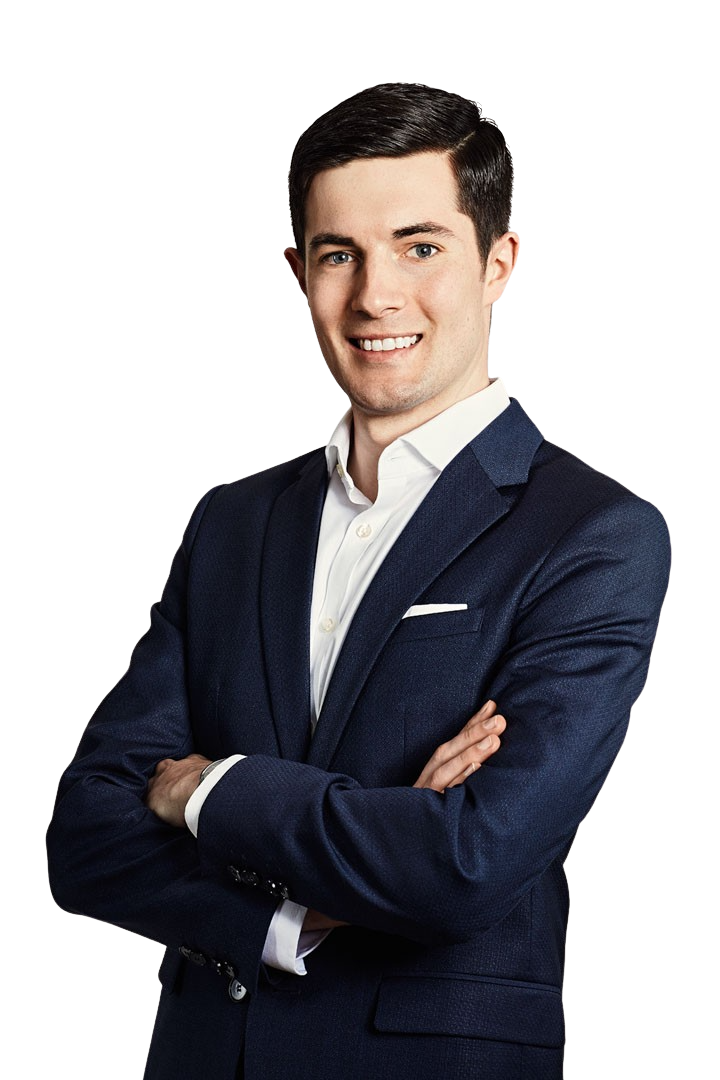
W.os (Volkswagen), Arene OS (Toyota), Xmart OS (Xpeng), MB.OS (Mercedes-Benz), Ford.OS (Ford) und viele weitere – nahezu jeder OEM hat inzwischen eine Softwareplattform (marketingtechnisch) lanciert, die geradezu sinnbildlich für die Transformation zum Software Defined Vehicle steht.
In diesem Kontext werden gerne Vergleiche mit Betriebssystemen aus der Konsumgüterindustrie aufgestellt, wie das „Windows“ oder „iOS“ für das Fahrzeug. Obwohl die Vergleichbarkeit hier eingeschränkt ist, zeigt der Vergleich die klare Devise an die Kunden: das Fahrzeug ist ein Gerät, welches ganz ähnlich funktionieren soll wie ein Smartphone, d. h. mit regelmäßigen Updates, Funktionserweiterungen nach Auslieferung und einer nahtlosen Einbettung in den Alltag.
Doch was genau ist ein „Automotive Operating System (OS)“? Diese scheinbar einfache Frage ist bei weitem nicht so trivial wie man vermuten könnte, denn im Zuge einer Befragung von Industrieexperten (Berylls Automotive OS Study 2023) sind 82 Prozent der Überzeugung, dass es kein einheitliches Verständnis über den Inhalt des Automotive OS in der Industrie gibt. Wagt man den Versuch einer möglichst konsensfähigen Definition, so lässt sich das Automotive OS wohl am ehesten als Softwareplattform und Entwicklungs-Framework bezeichnen, welches von Kerndiensten (z. B. Hypervisor), über die Middleware (z. B. Kommunikationsschnittstellen) bis hin zu Plattformdiensten (z. B. Fahrzeugstatus) reicht.
Das Automotive OS soll als Abstraktionsschicht zwischen Soft- und Hardware die kontinuierliche Weiterentwicklung von Funktionen über Fahrzeuggenerationen hinweg, höhere Geschwindigkeit in der Entwicklung und eine einfache Integration von Drittanbietersoftware ermöglichen, um nur einige zentrale Punkte zu nennen.
Das Automotive OS ist dabei vor allem eines: Enabler. Der Fahrer oder Benutzer eines Fahrzeugs merkt hiervon zunächst denkbar wenig und könnte die verschiedenen OS der OEMs nicht voneinander unterscheiden; das Operating System kann nicht zur Differenzierung dienen, wohl aber das Vorhandensein eines solchen. Dass die OEMs an ihrem eigenen OS arbeiten, liegt vor allem in der Tatsache begründet, dass sie es benötigen, um einerseits die Software-Komplexität über die verschiedenen Modelle und Baureihen hinweg beherrschbar zu machen und andererseits die Fahrzeuge gemäß der Kundenerwartung kontinuierlich „beim Kunden“ weiterzuentwickeln. Dass sie es dabei selbst tun und kein fertiges OS kaufen, liegt daran, dass es quasi keine vollständige Lösung für den Markt gibt. Vorhandene Lösungen zielen dabei zumeist auf einzelne Domänen ab (insbesondere im Bereich Infotainment gibt es diverse „OS“).
In dieser Situation, in der nahezu alle OEMs an einem nicht differenzierenden OS arbeiten und hierfür enorm hohe Investitionen tätigen, ist eine Konsolidierung nahezu zwangsläufig erwartbar. Nicht zuletzt auch, weil vielen OEMs die notwendigen Fähigkeiten und vor allem Ressourcen fehlen, um alles selbst in der gesetzten Zeitschiene zu entwickeln, wie 86 Prozent der befragten Experten mit hoher Zustimmung bestätigen. Das zeigte sich auch in der Industrie angesichts der sich ändernden Strategien.
Etwa 74 Prozent der befragten Industrieexperten sind sich sicher, dass sich langfristig etwa drei bis fünf Plattformlösungen im Markt etablieren werden. Auffällig ist hierbei, dass die Zustimmung unter den befragten Führungskräften von OEMs geringer ausfällt als die von Zulieferern und Big Techs. Eine mögliche Ursache für die verhaltene Konsolidierungserwartung auf Seiten der OEMs liegt auch in der Unsicherheit über die Trennung von differenzierenden und nicht-differenzierenden Aspekten des AOS. Hierzu kommt die mit einer Konsolidierung einhergehende Sorge über fehlgeleitete Investitionen und den Verlust über die Kontrolle der Softwarearchitektur und den Funktionsumfang im Fahrzeug. Einfach ausgedrückt: die befragten OEM-Führungskräfte sind sich derzeit noch unsicher, ob und wie eine Konsolidierung funktionieren kann und welche Konsequenzen dies für sie hätte. Zulieferer hingegen sehen die Konsolidierung überdurchschnittlich stark und stellen sich strategisch entsprechend auf.
Wer die avisierten drei bis fünf Plattformlösungen bereitstellt, ist noch völlig offen. Für eine Mehrheit der Befragten (60 Prozent) scheint aber klar zu sein, dass Big Techs wie Google im Automotive OS Markt erfolgreich sein werden. Dies ist nicht verwunderlich, sind beispielsweise Google Dienste in immer mehr Fahrzeugen, wie zuletzt von Mercedes-Benz angekündigt, fester Bestandteil. Und auch wenn sie heute noch sehr über die Applikationen in ihren klassischen Domänen Infotainment aber auch autonomes Fahren kommen, so ist zu erwarten, dass sie sich sukzessive im Automotive Stack vorarbeiten, um das eigene Cloud- und Datengeschäft über Bundling-Kooperationen sicherzustellen.
Ein Großteil der befragten Experten (78 Prozent) glaubt daran, dass Open-Source Software (OSS) eine wichtige Rolle bei künftigen AOS-Lösungen spielen wird. Insbesondere Experten von Big Techs sehen die Etablierung einer Open Source Plattformlösung als sicher an, wie sich auch an den entsprechenden Strategien ablesen lässt. Vertreter der Zulieferer zeigen sich bezüglich des Erfolges von Open-Source Automotive OS Lösungen eher skeptisch. Als Gründe sind hier neben offenen Fragen zur Monetarisierung und einem befürchteten Kontrollverlust vor allem auch ungeklärte Lizenz- und Haftungsfragen zu nennen.
Da sich durch eine hardwareunabhängige Softwareplattform auch eine kontinuierliche Weiterentwicklung der Software umsetzen lässt, werden OEMs künftig auch den Lebenszyklus der Fahrzeuge anders betrachten und zunehmend auf kontinuierliches Lebenszyklusmanagement setzen. Dies bestätigen auch 72 Prozent der befragten Experten mit hoher Zustimmung. Besonders die Vertreter von Big Techs zeigen sich hier sehr optimistisch, auch weil sie auf ihre Erfahrungen aus der Konsumgüterindustrie (bspw. Smartphones) und dem Internet of Things (IoT) in Kombination mit ihren Cloud-Diensten zurückgreifen können.
Der Übergang zu einem kontinuierlichen Lebenszyklusmanagement bricht dabei mit dem traditionellen SOP-orientierten Lieferkettenmodell, das durch eine Planung in Sechs-Jahreszyklen gekennzeichnet ist. Folglich müssen die Zulieferer ihre Entwicklungsressourcen zunehmend flexibilisieren, da die Planbarkeit abnimmt und andere Rahmenvertragslaufzeiten zur Norm werden. Zulieferer können jedoch auch von längeren Hardware- und Basis-Software-Lebenszyklen profitieren, und so die Entwicklungskosten besser umlegen. Zudem können diejenigen, die über geeignete Fähigkeiten verfügen, auch zu strategischen Partnern werden und über neue Monetarisierungsmodelle entlang des Lebenszyklus des Fahrzeugs partizipieren.
Durch die Separierung von Hardware und Software ergibt sich ferner auch das Risiko für „Tier 1“- Zulieferer, ihr klassisches Geschäft als Systemlieferant zu verlieren, denn die heutige Kombination aus integrierter Hardware und Software kann künftig auch anders gelöst werden. So kann die Software separat von der Hardware zugekauft werden und einer der zahlreichen Entwicklungsdienstleister die entsprechende Integration übernehmen. Die Zulieferer laufen dabei möglicherweise Gefahr, zu reinen Hardware-Lieferanten degradiert zu werden, wie 76 Prozent der befragten Experten verstärkt befürchten. Dies stellt sie in den Wettbewerb zu „echten“ Hardware-Auftragsfertigern mit deutlich schlankeren Kostenstrukturen und die avisierten EBIT-Ziele rücken für viele in weite Ferne.
Auch wenn das Operating System der OEMs noch nicht klar definiert ist, so sind die Ziele eindeutig und die Umsetzung unabdingbar. Ob die OEMs auch in fünf Jahren noch ihre jeweilige nicht differenzierende autarke Lösung entwickeln, statt auf eine dann im Markt verfügbare Lösung von Big Tech, Open Source, Softwareanbieter oder anderen OEMs zurückzugreifen, darf bezweifelt werden. In jedem Fall wird es die Schnittstelle zwischen OEMs und Zulieferern verändern, denn die Nutzung einer fahrzeugübergreifenden Softwareplattform kann das heutige Geschäftsmodell vieler Zulieferer in Bedrängnis bringen, birgt jedoch gleichzeitig Chancen für eine Fokussierung des Geschäfts und neue Partnermodelle sowie eine Marktöffnung für „Tier-n“-Zulieferer.
Dr. Jürgen Simon
Dr. Jürgen Simon (1986) ist als Associate Partner bei Berylls by AlixPartners (ehemals Berylls Strategy Advisors) tätig, einer internationalen und auf die Automobilitätsindustrie spezialisierten Strategieberatung. Er ist Experte für Vertriebs- und Unternehmensstrategien sowie M&A und kann auf eine langjährige Beratungserfahrung zurückschauen. Er berät seit 2011 Automobilhersteller und -zulieferer und verfügt über fundiertes Expertenwissen in den Bereichen ganzheitliche Strategieentwicklung, Geschäftsmodelle und Commercial Due Diligence. Weitere Schwerpunkte liegen in Markteintrittsstrategien sowie Themen rund um das „Software Defined Vehicle“. Als diplomierter Ökonom der Universität Hohenheim hat er vor seinem Einstieg bei Berylls am Institut für Unternehmensführung des Karlsruher Instituts für Technologie (KIT) promoviert.

Sebastian Böswald
Sebastian Böswald (1991) kam im April 2021 zu Berylls by AlixPartners (ehemals Berylls Strategy Advisors). Er ist Associate Partner und ein Experte für Transformation und Betrieb. In den letzten zehn Jahren hat er sich auf Strategie und Organisationsdesign sowie auf zwei Megatrends konzentriert, die die Automobilindustrie prägen: Software-definierte Fahrzeuge und CASE (Connected, Autonomous, Shared und Electrified Mobility). In diesen Bereichen hat er sowohl unsere globalen OEM-Kunden als auch Tier-1-Zulieferer und Technologieunternehmen beraten.
Bevor er zu Berylls kam, arbeitete er für PwC Strategy& und begann seine Karriere bei BMW als Projektmanager für Produktstrategie und digitale Ladedienste.
Er erwarb einen Bachelor of Science in Automobilinformatik an der Technischen Universität Ingolstadt sowie einen Master of Science in Management an der Technischen Universität München.

NO TIME TO READ THIS WEBSITE?